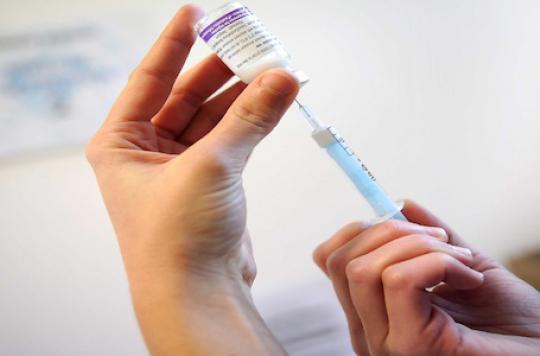Pediatric vaccination against rotavirus would reduce hospitalizations for gastroenteritis by 80% in 0-4 year olds. In France, the vaccine is not recommended.

Pediatric rotavirus vaccination dramatically reduces hospitalizations for gastroenteritis in babies. These are the results of an American study that has just published the Journal of the American Medical Association.
Paul Gastanaduy and his colleagues at the Centers for Disease Control and Prevention in Atlanta compared the incidence of hospitalizations for gastroenteritis between the period 2000-2006, to the years 2008, 2009 and 2010, that is to say before and after the introduction of the vaccination in infants. And the benefits don’t stop with the little ones and those who have been vaccinated.
In fact, doctors have observed a significant reduction of 80% in hospitalizations for gastroenteritis linked to rotavirus during the post-vaccination years in the 0-4 age group, compared to the period 2000-2006. For the 5-14 age group, this drop was still 70%. Concerning 15-24 year olds, again vaccination reduced hospitalizations by 53%.
“The decrease in these cases of gastroenteritis in young or even adult populations who have not yet been vaccinated could be explained by the indirect protection conferred by the vaccination of the youngest against rotavirus”, confide the authors. “These results confirm the determining role of children in the transmission of rotavirus. The indirect benefits of pediatric rotavirus vaccination on the adult population should amplify the effects of the US vaccination program, ”they conclude.
However, despite the advantages of this vaccination which had already been demonstrated in previous studies, these vaccines are still not recommended in France by the High Council of Public Health (HCSP). There are several reasons for this.
In 2010, during the Committee’s last opinion on this vaccination, a slight contamination by a porcine virus was identified in the two available vaccines. Even if it did not represent a danger to human health, this porcine virus has since been removed from batches of vaccines placed on the market.
Then, the experts had estimated that the slight risk of intussusception, a medico-surgical emergency, within 7 days of the vaccination also tipped the scales in the unfavorable side. Last argument that convinced the experts, the economic aspect. The drinkable vaccines currently on the market are admittedly very expensive, around 150 euros for the 2 or 3 doses required.
Contacted in 2012 by why actor, theProf. Daniel Floret, Chairman of the Technical Committee on Vaccinations, explained: “Our medico-economic studies show that at the price at which the vaccine is currently sold, this vaccination is not cost effective, even if it makes it possible to reduce the disease, it does not save the State. ”
A decision that was not to the taste of many pediatricians since at this same period two learned societies, the Pediatric Infectious Pathology Group (GPIP) and the French Association of Ambulatory Pediatrics (AFPA), requested that this opinion be reconsidered. And for these specialists, the various points which gave doubt to the experts when issuing the recommendation in 2010 have been clarified.
In addition, even if since 2010 the price of the vaccine has not fallen, for these learned societies “it seems astonishing that so-called poor countries or middle-income countries have been able to generalize this vaccination and that France cannot do so. . A price negotiation between manufacturers and health authorities must still be possible for this vaccination to become cost-effective, ”they concluded.
Joined by why actor, Professor Floret announces that a “new opinion should be delivered before the end of the year. “
.

















